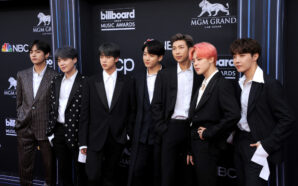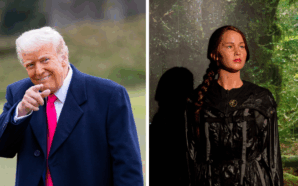
In a week already filled with intense public scrutiny around the long-shadowed Jeffrey Epstein saga, new commentary from broadcaster Megyn Kelly has ignited a fresh wave of discussion—accompanied by renewed demands for transparency from voices across the political spectrum.
During a recent episode of The Megyn Kelly Show, Kelly referenced insights from what she described as a source “very, very close to the case,” offering a controversial perspective on Epstein’s history of abuse. Kelly emphasized repeatedly that the subject matter is “disgusting,” while relaying the individual’s claim that Epstein’s behavior, while criminal and abhorrent, did not fit their personal interpretation of clinical pedophilia.
Kelly stressed she was not excusing Epstein’s actions, reiterating that his involvement with minors was “repulsive” and that discussing the topic at all is “deeply unsettling.” Epstein, who was convicted in 2008 for soliciting a minor and later charged with sex trafficking before his death in 2019, has remained at the center of international conversation due to the powerful network surrounding him and the still-unreleased trove of documents tied to his case.
Megyn Kelly: "I know somebody very close to this case…Jeffrey Epstein, in this person's view, was not a pedophile…He was into the barely legal type, like he liked 15 year old girls…He wasn't into like 8 year olds…There's a difference between a 15 year old and a 5 year old." pic.twitter.com/a7wmT3BRJU
— Republican Accountability (@AccountableGOP) November 13, 2025
Kelly acknowledged that her own views had shifted over time—particularly after former Attorney General Pam Bondi claimed the Justice Department possessed “tens of thousands of videos” of alleged abuse materials. Kelly noted that she no longer fully trusts Bondi’s assertions and emphasized the importance of verified facts as the public awaits more concrete information.
Meanwhile, the debate around the unreleased Epstein files flared again on ABC’s The View, where cohosts Ana Navarro and Sara Haines sharply criticized the ongoing secrecy. Navarro expressed frustration with what she described as powerful individuals protecting one another, saying that withholding Epstein-related documents “fails the victims yet again.” Haines challenged the long-standing lack of transparency, questioning why Epstein maintained such extraordinary influence among global elites.
Both hosts urged lawmakers to support the release of all remaining materials connected to the case, with Navarro warning that any vote against disclosure would leave “a stain” on elected officials’ reputations. Their remarks follow recent document releases by the House Oversight Committee, which continue to raise questions about Epstein’s extensive connections, including communications referencing former President Donald Trump. Trump has consistently denied any wrongdoing related to Epstein.
As public pressure mounts, conversation around Epstein’s crimes and their broader implications shows no sign of fading. Across media and political spaces, one message is becoming increasingly clear: the public wants answers, and advocates insist that full transparency is vital for accountability and for honoring the survivors whose lives were upended by Epstein’s actions.
-
Focused on Quality Food and Community Learning Jupiter Creamery Farm sits on ten acres in Jupiter Farms, Florida, operating...
-
Palm Beach Gardens may be known for its manicured landscapes, championship golf, and upscale ease, but beyond the polished...
-
Credit: Shutterstock Zayn Malik is officially stepping into a bold new era. Today, February 6, the global superstar released...
-
Credit: Shutterstock Bruce Springsteen is back in the spotlight, and this time, he’s using his music as a megaphone...
-
Credit: Shutterstock Hollywood woke up buzzing this week as Sinners officially rewrote the Oscar record books. Ryan Coogler’s genre-blending...
-
Credit: Shutterstock Global superstars BTS are officially back—and they’re bringing their hearts with them. The iconic seven-member group has...
-
Credit: The Wagyu Shop Luxury food is not only reserved for the holidays The Wagyu Shop has built its...
-
Credit: Shutterstock Disney is officially spinning up a new chapter of Tangled, and fans finally know who will be...
-
Credit: Shutterstock After nearly a decade of Demogorgons, bike rides through Hawkins, and friendships forged in the Upside Down,...
-
Credit: Shutterstock Hollywood audiences are getting a front-row seat to a story that’s as heartfelt as it is dramatic...
-
Credit: Shutterstock President Donald Trump has unveiled a bold and buzz-worthy addition to America’s upcoming 250th birthday celebration: the...
-
Credit: Shutterstock Stranger Things fans, consider this your official warning: the road to the finale is about to get...




















